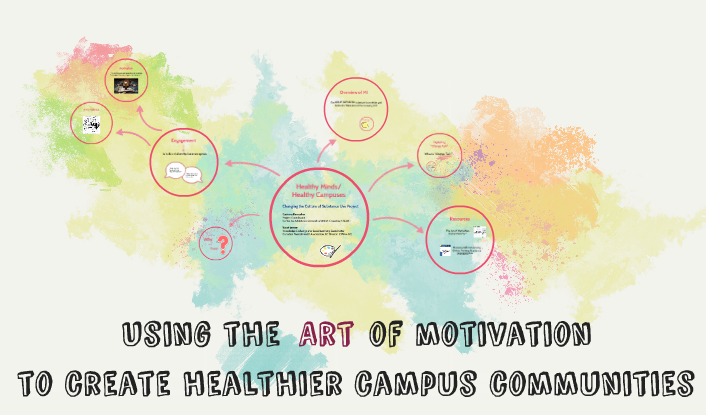
Webinar: Using the Art of Motivation to Create Healthier Campus Communities
Date and time
Location
Description
Using the Art of Motivation to Create Healthier Campus Communities

Webinar Details
January 30th, 2015
10:00- 11:30am PST
http://momentum.adobeconnect.com/artofmotivation/
Dial: 1-866-680-0767
Participant Code: 6117503
Overview
“Art of Motivation” is a collaborative approach to engage stakeholders, facilitate knowledge exchange and build capacity for change. The principles of motivational interviewing have been applied within the Changing the Culture of Substance Use Project, as well as the broader Healthy Minds | Healthy Campuses Community of Practice. Learn how these strategies can be applied to shift culture on campuses to promote mental health, reduce risky substance use and strengthen connections.
Background Information
Co-led by the Canadian Mental Health Association BC Division and the Centre for Addictions Research of BC, Healthy Minds | Healthy Campuses (HM | HC) is a vibrant province-wide community of practice that engages students, campus professionals, faculty, administrators and community partners. Funded in part by the BC Ministry of Health, this initiative facilitates creative and collaborative learning opportunities to build capacity in mental health promotion and reducing risky substance use. For 10 years we have worked with campus stakeholders to bring research and theory into practice and inspire innovation towards systemic, sustainable change with an ultimate goal of creating conditions that enhance student well-being and learning. Within HM | HC, our Changing the Culture of Substance Use (CCSU) Project uses the “Art of Motivation” to support post-secondary institutions to mobilize stakeholders to address substance use within campus settings.
The “Art of Motivation,” informed by Miller and Rollnick’s Motivational Interviewing principles, can be used as an effective approach to collectively engage community stakeholders. Our project has applied this approach by using it to engage campus stakeholders around the goal of shifting campus substance use cultures and taking a systemic approach to promoting health. The “Art of Motivation” can be used to mitigate power dynamics, encourage empathy and build understanding to create an effective dialogue. Through participatory focus group sessions, knowledge is shared, ideas offered and potential action areas are established. Using a motivational approach, we have effectively been able to facilitate knowledge exchange, collaboration and networking across institutions.
The goal of our webinar is to provide background and principles on how the “Art of Motivation” can be used collectively for engagement. Through critical dialogue and reflection, participants will be engaged in meaningful conversation to help them explore how this approach might be applied to their engagement goals.
Webinar Facilitators
Catriona Remocker
Project Manager, Changing the Culture of Substance Use Project, Healthy Minds | Healthy Campuses
Centre for Addictions Research of BC, University of Victoria
Sarah Joosse
Knowledge Exchange and Social Learning Coordinator, Healthy Minds | Healthy Campuses
Canadian Mental Health Association, BC Division
Organized by
A Community of Practice comprised of people who share the common goal of promoting campus mental health and healthier relationships with substances in BC.
The lead partners for Healthy Minds | Healthy Campuses are the Canadian Mental Health Association British Columbia Division (CMHA BC) and the Centre for Addictions Research of BC (CARBC). Healthy Minds | Healthy Campuses is managed and coordinated by CMHA BC on behalf of the BC Partners for Mental Health and Addictions Information. The BC Partners are funded by BC Mental Health and Substance Use Services, an agency of the Provincial Health Services Authority. The Changing the Culture of Substance Use Project is funded by the BC Ministry of Health.